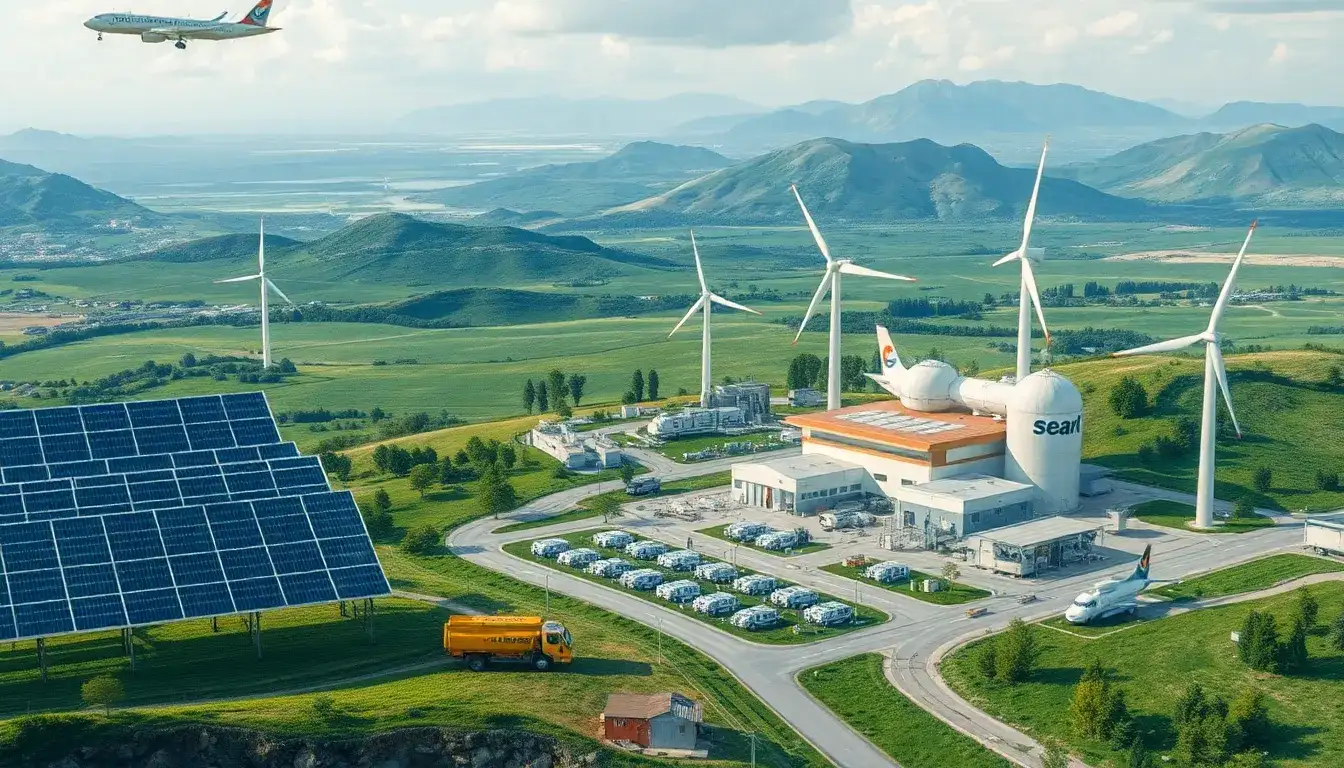
Two emerging European energy companies have unveiled plans to produce synthetic aviation fuel, known as e-SAF, at new manufacturing facilities powered by low-cost renewable energy. E-fuels are created by combining water and renewable electricity to generate green hydrogen, which is then blended with captured CO2 to produce low-carbon fuel. However, the high cost of renewable energy in many regions currently renders this fuel prohibitively expensive.
In Germany, Spark e-Fuels has recently secured a €2.3 million ($2.4 million) pre-seed funding round, led by climate-focused investor Nucleus Capital, to advance a pilot e-SAF production facility. The company utilizes proprietary technology that adjusts the rate of SAF production according to the availability of affordable renewable energy sources.
Meanwhile, Norwegian company Norsk e-Fuel has partnered with strategic German investor Prime Capital and renewable energy firm RES to develop Project Alby, a new e-SAF plant in Sweden. This project aims to produce at least 80,000 tonnes of synthetic fuel annually at a site located in Ånge, approximately 370 kilometers north of Stockholm. The region was chosen for its abundant renewable energy generation, which offers low electricity prices conducive to e-fuel production.
Synthetic fuels are gaining traction not only due to the scarcity of traditional feedstocks like fats, oils, and greases but also because of mandates within the European Union’s ReFuelEU initiative. This initiative requires e-fuels to constitute at least 1.2% of supplies at EU airports by 2030 and 35% by 2050.
Spark e-Fuels has patented a ‘demand-responsive technology’ that allows it to adjust the production rate of synthetic fuels based on the availability of low-cost green energy. This innovative approach also simplifies SAF manufacturing by decoupling aspects of traditional production methods. This flexibility has attracted significant investment from Nucleus Capital, along with other climate-focused investors like Zero Carbon Capital, Chemovator, Voyagers.io, 1.5° Ventures, and IBB Ventures.
According to Spark e-Fuels CEO Mathias Bösl, “We have a global data model that helps us identify optimal production locations based on renewable energy costs, transport costs, interest rates, and CO2 availability.” He added that their technology can operate at full capacity when abundant energy is available and reduce output when energy supply is limited.
The production process consists of two stages: converting CO2 and hydrogen into syngas, followed by a Fischer-Tropsch process that transforms syngas into liquid e-fuels. Bösl noted that conventional technologies typically achieve only 50-60% conversion of CO2 to syngas, leading to substantial recycling needs. In contrast, Spark’s method is designed to achieve nearly full conversion, eliminating the need for large recycling streams and enhancing both energy efficiency and process flexibility.
In Sweden, the collaboration between Norsk e-Fuel, Prime Capital, and RES marks a significant milestone for Norsk e-Fuel as it seeks to expand its operations and contribute to fossil-free fuels for the aviation sector. “This partnership is a critical step in reducing aviation emissions and accelerating Sweden’s transition to sustainability,” commented Prime Capital’s Managing Director, Jens Walzner.
The strategic partnership with Boeing, established in January, aims to accelerate the development of industrial-scale power-to-liquids facilities in the Nordics and beyond. Lars Bjørn Larsen, CCO of Norsk e-Fuel, emphasized that Boeing’s backing will expedite their project pipeline and assist the aviation industry’s transition to net-zero emissions.
Steve Gillard, Boeing’s Regional Sustainability Director, added, “Our partnership to advance e-fuels will enhance the commercialization of SAF in the Nordics and globally, increasing accessibility for our customers as we work to build a robust SAF ecosystem.” This collaboration has been positively received by Norwegian, an investor in Norsk e-Fuel, with CEO Geir Karlsen expressing optimism about leveraging Boeing’s expertise to foster growth in this pioneering sector.
Original article by NenPower, If reposted, please credit the source: https://nenpower.com/blog/emerging-e-saf-projects-by-spark-and-norsk-aim-for-affordable-renewable-energy-production/


